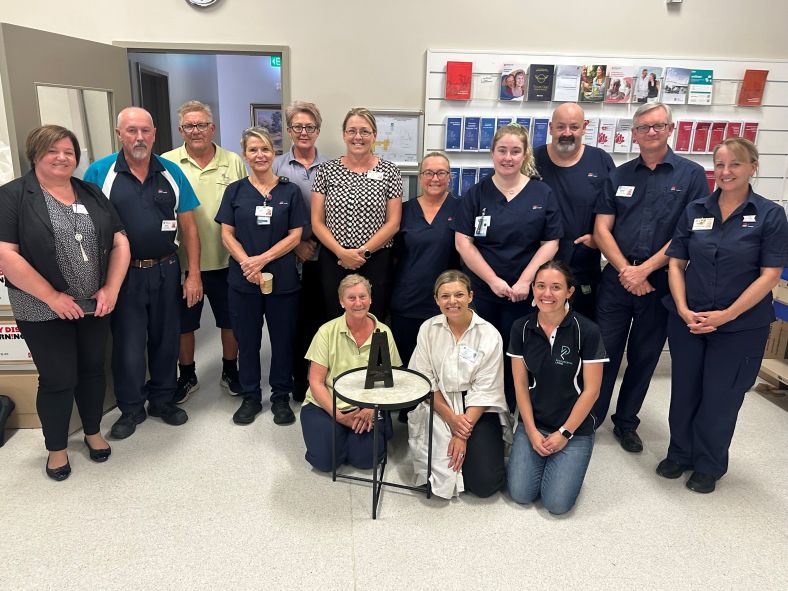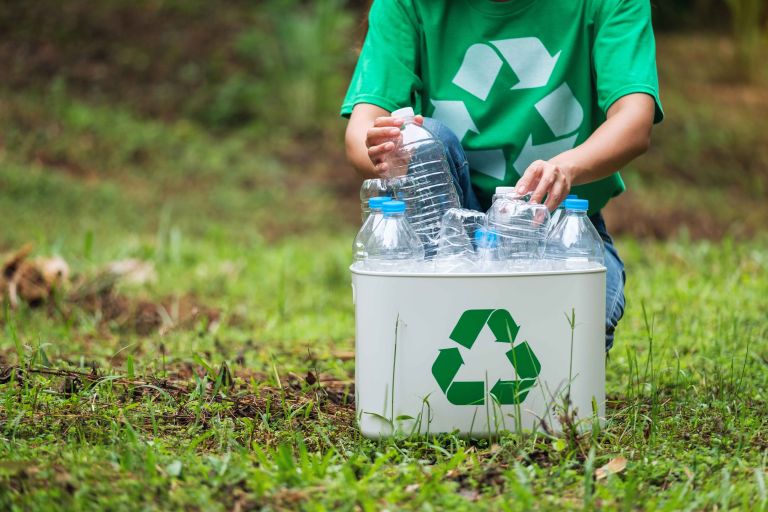Needle cap recycling program
Diverting clean plastic from landfill and giving it new life.
Healthcare uses a lot of single-use plastics. While single-use plastic is sometimes needed and unavoidable, the waste hierarchy recommends to first reduce use and where it is safe to do so to recycle.
All needles are protected by small rigid plastic caps to reduce the risk of injury. These plastic caps are uncontaminated, easy to separate and accepted for recycling.
Following the success of 2 pilot projects, our local health district is working to make needle cap recycling a routine practice across several hospitals and community-based services.
We partnered with 2 local plastic manufacturers, DEEPS Engineering and Resourceful Living, who can reprocess plastic needle caps into other products.
Successful pilot projects:
- In 2021, the Belmont Mass Vaccination Hub diverted 70kg of COVID-19 vaccine needle caps into building and engineering parts.
- In 2023, during the annual influenza vaccination campaign, the staff health and wellbeing team diverted 35kg of plastic needle caps from landfill.
Recycling renal dialysis plastics
Giving new life to plastic destined for landfill.
Our renal dialysis units have been exploring recycling opportunities to manage unavoidable single use plastic products that are not accepted by mainstream recycling facilities and would be otherwise be destined for landfill.
Manufacturing the 2023 Hunter New England Local Health District Excellence Awards out of plastic waste generated from our renal dialysis units is symbolic of our ambitious Sustainability Strategy and shows us what is possible for the future.

2023 Hunter New England Health Excellence Awards | Trophies
Hunter New England has found innovative ways to recycle single-use plastic from their dialysis units and have repurposed plastic waste into trophies for the 2023 Hunter...
Kidney disease and climate change have a two-way relationship. The rise in global temperatures and increasing frequency of extreme heat events is increasing the burden of kidney disease around the world.
Haemodialysis is a process / treatment helps filter the blood of people whose kidneys are not functioning properly. It removes toxins, extra salt, and fluids from the blood, helping the body to keep a proper chemical balance.
Haemodialysis uses a lot of energy and water, as well as excess amounts of single-use plastic waste. A North American study assessed the carbon footprint of a single treatment to be 58.9kg carbon dioxide equivalent (CO2-eq3).
Key figures:
- Hunter New England LHD (HNELHD) provides about 41,000 haemodialysis treatments each year.
- Based on available data, the service’s annual carbon footprint is 2424.9 tonnes, equal to driving 9,758,000km in a standard car!
- Our sustainability team conducted waste audits and found every haemodialysis treatment generated 0.6kg of uncontaminated plastic waste (averaging 25 tonnes of recyclable plastic) every year.
The uncontaminated plastic waste (polypropylene) is generally not accepted in mainstream recycling facilities. HNELHD partnered with Resourceful Living, Muswellbrook Shire Council and The Melt to recycle the plastic waste from our renal dialysis units to manufacture award trophies for the 2023 Hunter New England LHD Excellence Awards.
- In 2023, we diverted and repurposed 415kg of single-use plastic from landfill. It is equal to saving 2230kg of CO2 emissions and driving 13360km in a standard car.
- As well as manufacturing the Hunter New England Local Health District Excellence Awards, Resourceful Living also used the hospital plastic to create tabletops, plant pots, home decor and jewellery.
- The 2023 Hunter Manufacturing Awards awarded us the 2023 Collaboration Partnership Award with Resourceful Living.
- We’re working with suppliers to help reduce our plastic waste and recycle unavoidable single-use plastic items.
- We buy well designed products that help with resource recovery and promotes a circular economy.

